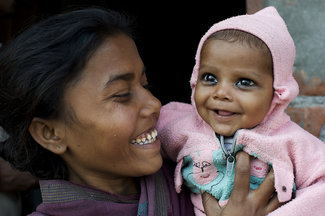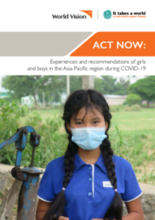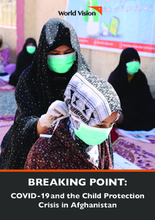

Displaying 221 - 230 of 753
This consultation explores children and young people’s views and experiences related to COVID-19 and its secondary impacts.
This presentation - delivered by Marinus van IJzendoorn at a 18 November 2020 meeting of the Evidence for Impact Working Group, a working group of the recently launched Transforming Children's Care Global Collaborative Platform - presents evidence of the harmful impacts of institutionalization on children, demonstrates some of the benefits of deinstitutionalization for getting children back on track, and raises questions about gap-year volunteers working in orphanages.
This panel discussion is a pre-event ahead of the International Care Leavers’ Convention 2020. The aim of the webinar is to provide an insight into global research on leaving care processes as well as into research activities of care leavers.
Key findings from this report demonstrate that due to the negative impact of the outbreak, the vulnerability of the households further increased and already existing dangerous coping strategies such as child labor, child marriage and decrease of food consumption have been worsened by financial insecurity for families and losses of household income.
This discussion session for careleavers comes ahead of the International Care Leavers Convention on 23-25 November 2020.
The India Alternative Care Network (IACN) held a website launch event on 21 October 2020.
The India Alternative Care Network (IACN) is hosting a website launch event on 21 October 2020 (Wednesday) at 5 P.M IST.
The purpose of this consultancy is to provide technical support to the Ministry of Gender, Family and Social Services to draft the strategy and action plan for de-institutionalisation and alternative care for children.
In this podcast episode, Pramila Manandhar, media officer for CWIN in Nepal, shares her experiences in supporting children living and working on the street during lockdown.
According to this article from the Times of India, 778 civil society organization and individuals working on issues concerning human rights of children have issued an open letter calling for withdrawal of the letter from the National Commission for Protection of Child Rights seeking restoration of children lodged in children homes in eight states back to their families.


